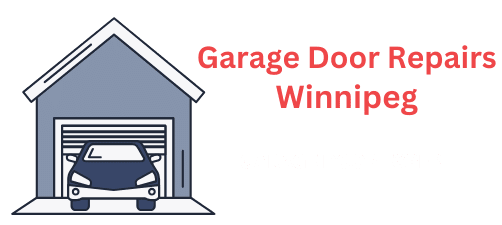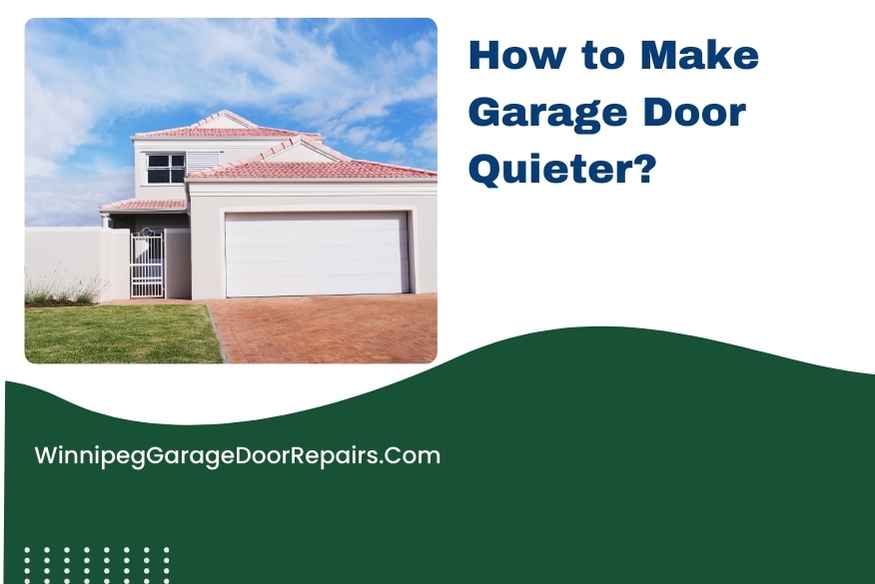A noisy garage door can be more than just an annoyance; it can disrupt your family’s peace and bother your neighbors. Living in Winnipeg, where extreme weather conditions are common, having a well-functioning garage door is crucial for safety and comfort. Fortunately, with a few simple adjustments and replacements, you can significantly reduce the noise and improve the functionality of your Winnipeg garage door.
Make Garage Door Quieter
The key to a quieter garage door lies in regular maintenance and addressing the parts that cause noise. This includes checking the mechanical components like springs, hinges, and rollers, as well as ensuring the door is properly balanced and aligned. To effectively soundproof your home garage, it’s essential to pay attention to these crucial details and make necessary adjustments.
- Start with a Visual Inspection: Look for any obvious signs of wear and tear. Check for loose parts, as these can create extra noise during operation.
- Tighten All Hardware: Over time, the nuts and bolts on your garage door can loosen, leading to noisy operation. Tighten them with a wrench or socket set to reduce rattling sounds.
- Lubricate Moving Parts: Applying a silicone-based lubricant to rollers, hinges, and springs can help them move more smoothly and quietly.
- Consider the Material: Metal doors are often noisier than their wooden or fiberglass counterparts. If your door is metal, extra insulation may help dampen the sound.
Check The Nuts and Bolts
Loose hardware can lead to a lot of unnecessary noise. Regularly checking and tightening the nuts and bolts on your garage door can prevent this.
- Examine the Door Regularly: Make it a habit to inspect the door’s hardware every few months.
- Tighten Any Loose Parts: Use a socket wrench or an adjustable wrench to secure any loose nuts and bolts.
- Pay Special Attention to Hinges and Tracks: These areas are prone to loosening and can significantly contribute to noise if not maintained.
Lubricate the Rollers and Drums
Proper lubrication is essential for smooth and quiet operation. Use a garage door-specific lubricant or a silicone-based spray for best results.
- Clean the Rollers and Tracks First: Remove any dirt or debris to ensure the lubricant adheres properly.
- Apply Lubricant Sparingly: Too much lubricant can attract dust and dirt, leading to a build-up that can cause more noise.
- Lubricate the Drums and Bearings: These parts also benefit from regular lubrication, which can prevent grinding noises.
Replace the Rollers That Are Worn
Worn rollers can make a garage door operation noisy and erratic. Replacing them can significantly reduce noise.
- Identify Worn Rollers: Look for rollers that are cracked, worn, or not rolling smoothly.
- Choose the Right Replacement: Nylon rollers are quieter than metal ones and don’t require as much lubrication.
- Seek Professional Help if Necessary: If you’re not comfortable replacing rollers yourself, hiring a professional can ensure it’s done correctly.
Install a Quieter Opener
The type of garage door opener you have can also affect noise levels. If your opener is old or noisy, consider replacing it with a newer, quieter model. Additionally, addressing other noise sources like removing garage door window inserts can further reduce unwanted sounds, creating a more peaceful environment.
- Research Different Types of Openers: Belt-drive openers are typically quieter than chain-drive models.
- Consider a Model with Vibration Isolation: This feature can reduce noise by preventing the motor’s vibrations from transferring to the garage’s structure.
- Check for Features like Soft Start and Stop: These can make the door’s movement quieter and smoother.
Conclusion
With these steps, you can make your garage door much quieter, leading to a more peaceful home environment. Regular maintenance, proper lubrication, and updating worn or outdated components are key. Enjoy the tranquility and improved functionality of your newly quieted garage door!







